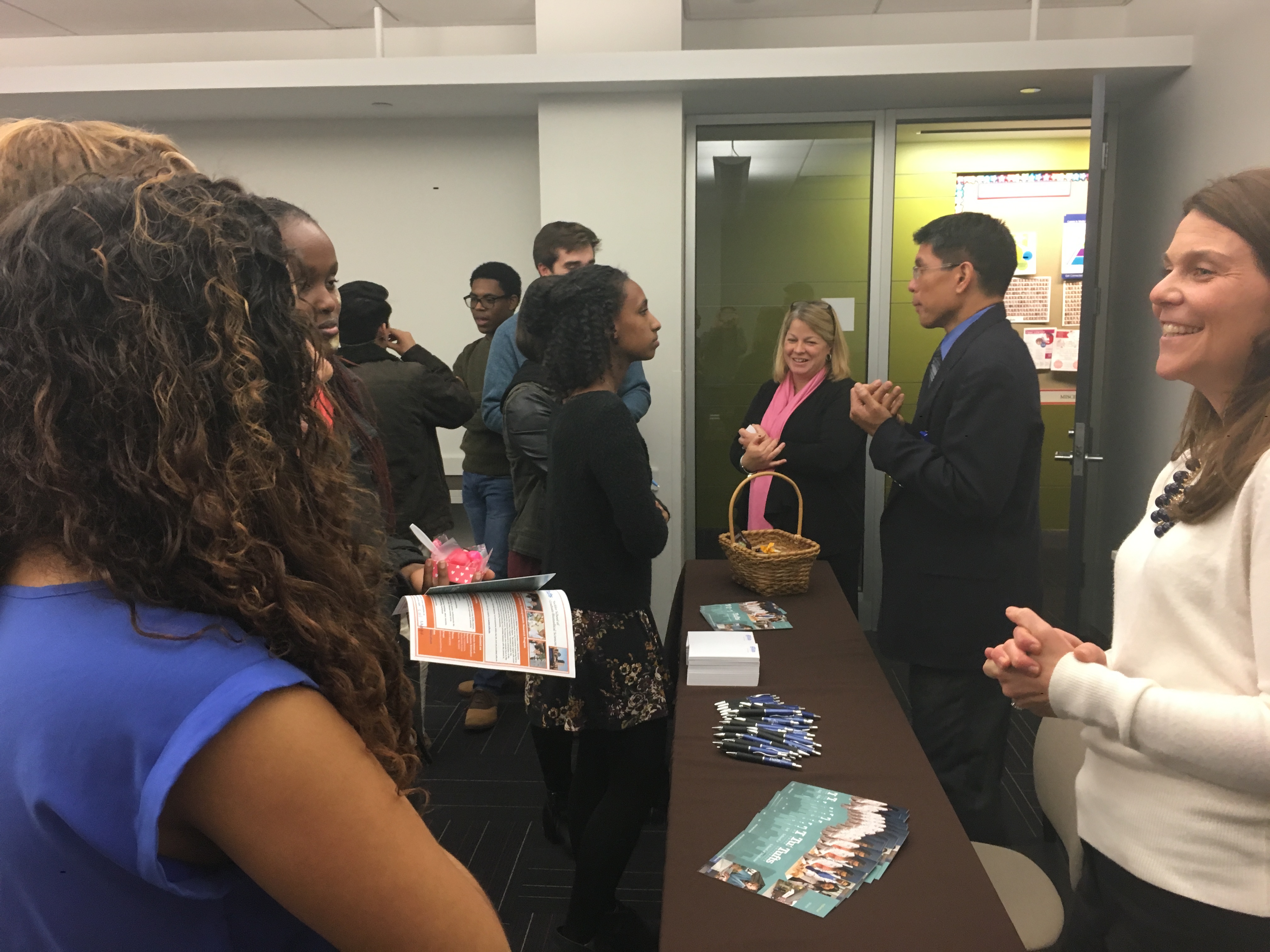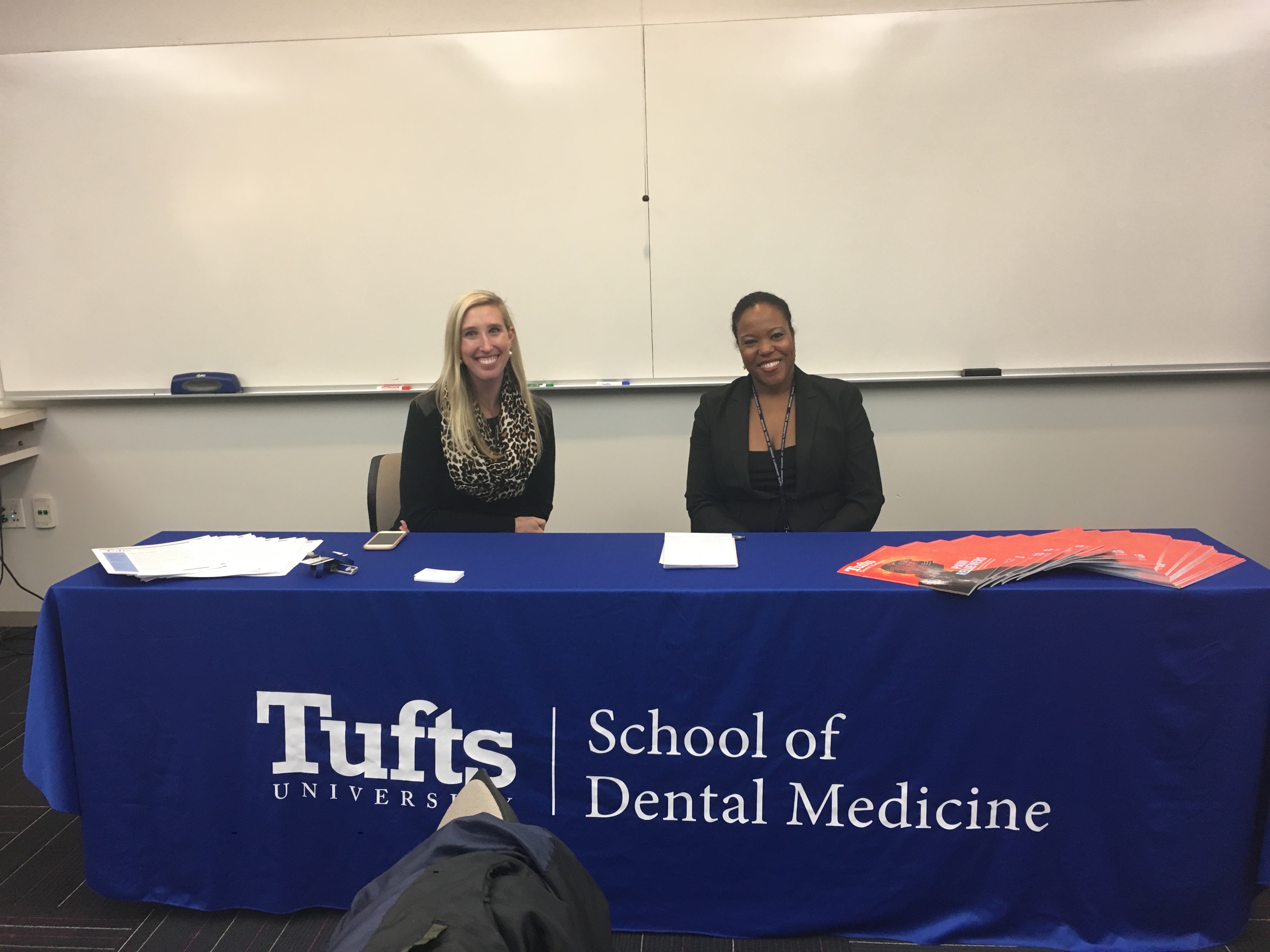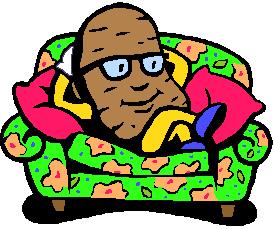On Friday, November 4th, the Tufts Minority Association of Pre-Health Students (MAPS) organized a Graduate Program visit to the health sciences campus in Downtown Boston. This event was hosted by the Tufts’ health professions schools, and provided undergraduate students with the opportunity to learn about the different degrees and health professions available to them after college. About twenty students from the Medford/ Somerville campus were able to attend this session and speak with representatives from the Tufts University medical school, dental school, Friedman school of nutrition, and Sackler school of biomedical sciences, allowing for a smaller and more intimate group discussion with the presenters. Initial introductions revealed that most attendees were first-and-second-year undergraduate students with a variety of professional interests, including clinical research, dentistry, and public health policy. However, students were also excited to learn that the Boston campus offers many dual degree programs across these schools, and that students enrolled in each school have many opportunities to interact and collaborate with one another. After this introductory session, professionals and current students at the school offered tours in the medical and dental school campus (the two campuses are connected with skyways!), and students had an opportunity to meet admissions members and ask about the programs available.

Jonah Tanguay-Colucci, a Junior at Tufts University and an attendee at the event, reflects on his experiences:
“I think the most important thing I learned as a freshman was that medicine is much more than doctors, and that watching Scrubs, Grey’s Anatomy or the like doesn’t at all tell you whether medicine is right for you. When I went on the MAPS trip to Tufts Medical Center I was reminded of these early lessons in my Tufts education. The tours were standard and the facilities were of course amazing. But what struck me most was the emphasis that medicine is a career centered around people, service, and civic leadership. It was wonderful to see that all the respective departments at the health sciences campus were there and were given equal time to talk about the opportunities available, and the importance of diversity across all the many health related professions. As a junior the speeches were many of the things I’ve heard before, but nonetheless I was impressed at the depth and the point that an interest in medicine does not necessitate a linear path to an MD. There are other ways to get there (master’s in biomedical sciences, doing work in public health, master’s in nutrition sciences) and there are other professions in the healthcare field that are rewarding and may be better suited depending on what you want out of your career in medicine.
When I was a freshman I knew I want ed to work in medicine, and that first and foremost I wanted a role where I really got to interact with the patient. Thanks to the amazing programs that Tufts sponsors, my world was expanded and I saw that there were many other opportunities to be explored. In the end the right choice for me was to change my track to Physician Assistant, because my primary interest was working with people, and seeing patients. As the various health science schools spoke to the group and took questions I was excited to see so many freshmen leaping at the chance to learn more about what healthcare really is and what is available. The various representatives talked a lot about getting your hands dirty in the field, and doing some heavy soul searching to make sure that medicine is right for you. Working in healthcare can be a rewarding career, but it is not necessarily an easy path to take. The time to ask the questions and explore what it is you truly want is now. You don’t want to be asking yourself whether you really like working with people when you see your first patients in the 3rd year of medical school, after investing 7 years of your life. That’s why groups like MAPS, and events like the Tufts Health Science Campus visit are so important. Even if you think you know what you want to do there is no harm in going to an event and approaching a nurse practitioner direct entry table, an occupational therapy table, a doctor of osteopathic medicine table. Exploring the many opportunities in the health field will help strengthen your convictions in the path you wish to take, and better prepare you for your future career in medicine.”
ed to work in medicine, and that first and foremost I wanted a role where I really got to interact with the patient. Thanks to the amazing programs that Tufts sponsors, my world was expanded and I saw that there were many other opportunities to be explored. In the end the right choice for me was to change my track to Physician Assistant, because my primary interest was working with people, and seeing patients. As the various health science schools spoke to the group and took questions I was excited to see so many freshmen leaping at the chance to learn more about what healthcare really is and what is available. The various representatives talked a lot about getting your hands dirty in the field, and doing some heavy soul searching to make sure that medicine is right for you. Working in healthcare can be a rewarding career, but it is not necessarily an easy path to take. The time to ask the questions and explore what it is you truly want is now. You don’t want to be asking yourself whether you really like working with people when you see your first patients in the 3rd year of medical school, after investing 7 years of your life. That’s why groups like MAPS, and events like the Tufts Health Science Campus visit are so important. Even if you think you know what you want to do there is no harm in going to an event and approaching a nurse practitioner direct entry table, an occupational therapy table, a doctor of osteopathic medicine table. Exploring the many opportunities in the health field will help strengthen your convictions in the path you wish to take, and better prepare you for your future career in medicine.”
We would like to thank all the students who attended, as well as the wonderful staff and students from the Boston campus who were gracious enough to host this special event for the Tufts undergrads. We hope that opportunities like this continue opening new doors for students early on in their college careers, especially for minority students on campus who are interested in health-related careers. Please stay tuned for other MAPS events we have planned for this year!
Saki Kitadai and Jonah Tanguay-Colucci






